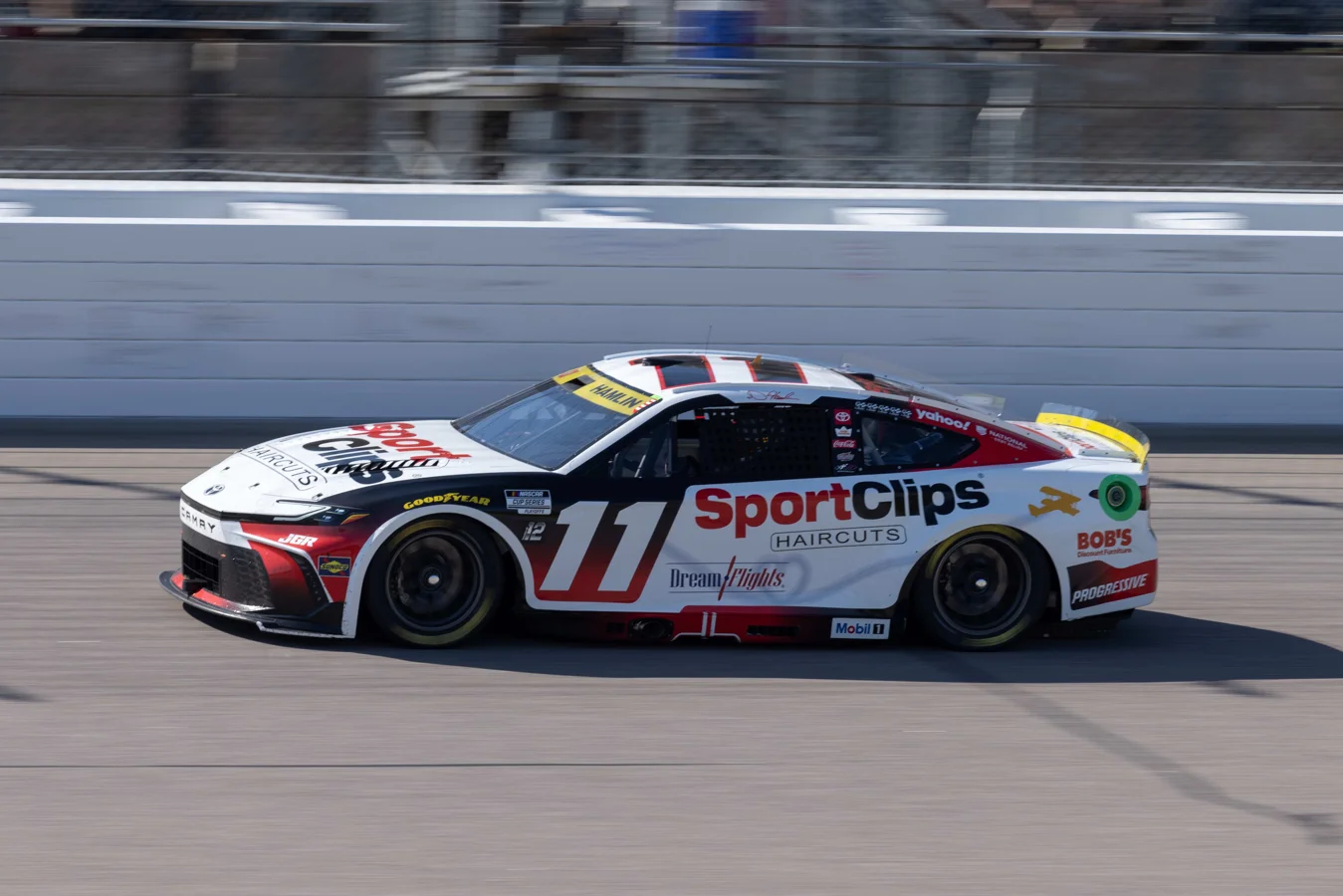NASCAR is struggling with declining ratings amid ongoing debates about its playoff format and inconsistent on-track excitement. Denny Hamlin, a leading driver currently involved in a lawsuit against NASCAR, has raised alarms about the sport’s direction and television deals during the 2025 season.
At the recent race in Kansas, Hamlin was part of a dramatic finish where he collided with Bubba Wallace—whose car he co-owns with Michael Jordan—in the final turn, allowing Chase Elliott to take the victory. This incident not only highlights competitive tensions but also signals challenges for both drivers as they aim to advance in the playoffs.
Hamlin Critiques NASCAR’s Television Strategy
On his Actions Detrimental podcast, Hamlin declined to apologize for his bump on Wallace, indicating potential strain in their owner-driver relationship. More importantly, Hamlin candidly discussed NASCAR’s plummeting TV ratings and the complicated nature of the sport’s multiple broadcast partners, which include Fox, Amazon Prime Video, TNT, and NBC.
This season marks NASCAR’s first year with a diverse lineup of television partners, but Hamlin argues that shifting races among numerous networks is harming the sport’s visibility and viewership.
Just not good. We signed the deal that we signed. We obviously lost a significant amount of network races in this TV deal,
Hamlin said.
And each one of the TV deals that we’ve signed over the last few years we’ve always just taken the most amount of money. You know what I mean? It’s not been about, ‘what’s going to put us on in the most households.’ You’re asking so much of your fans to just keep chasing you around all these different networks. And I know it’s not that hard, but when the NFL is taking such a lion’s share of those eyes right now, record-setting, every single week, people just, that’s their priority. And if football is not on, then I think that you’ve got a legitimate shot at being the next in line.
Limited Network Coverage Undermines Audience Reach
This year, NASCAR has only eight of its 36 points-paying races aired on network television, primarily during early and late-season events on Fox and NBC. Besides those, only the Talledega April race and the regular-season finale at Daytona appeared on broadcast networks. The remaining races are scattered across cable channels FS1, TNT, and USA Network, as well as Amazon Prime’s streaming platform.

By contrast, IndyCar’s agreement with Fox Sports places every race on broadcast television, contributing to increased ratings and stronger stability. This clear network presence has helped IndyCar strengthen its position, while NASCAR’s strategy of maximizing TV partners and revenue appears to have diluted its audience base.
Comparing Major Sports Leagues’ Broadcast Strategies
Major leagues like the NFL successfully balance lucrative deals by maintaining a strong network TV footprint, even as they expand into cable and streaming platforms. MLB and the NBA aim to replicate this approach to protect viewership, making sure fans can easily find games on broadcast channels.
NASCAR, however, seems to have deprioritized this approach, which may be contributing to its shrinking audience. The fragmented TV schedule forces fans to track race broadcasts across multiple platforms, challenging the sport’s ability to maintain consistent viewership amid stiff competition from football dominance on Sundays.
Hamlin’s Broader Critique and NASCAR’s Future Challenges
As a prominent voice within the sport, Hamlin’s views carry weight, especially as his 23XI Racing team with Michael Jordan fights an antitrust lawsuit against NASCAR’s governing body. This legal battle could reshape the sport’s competitive and business landscape.
With current TV contracts locked, including races on Amazon and TNT, NASCAR has limited options in the short term. However, increasing the number of races shown on Fox and NBC could help regain lost fans by reaching a wider audience through network broadcasts. This shift might be a vital step for the sport as it strives to rebuild excitement and attract viewers during crucial playoff rounds.
https://twitter.com/DirtyMoMedia/status/1972821254764675079
